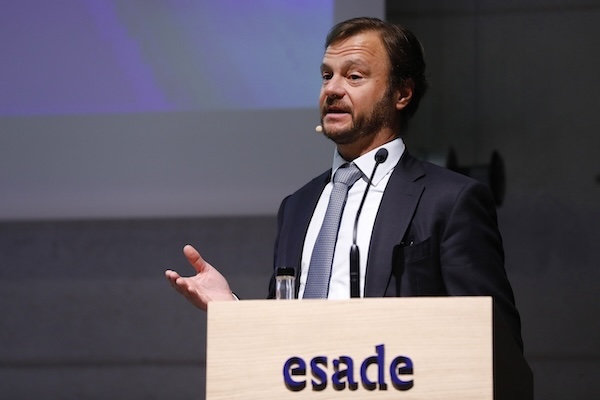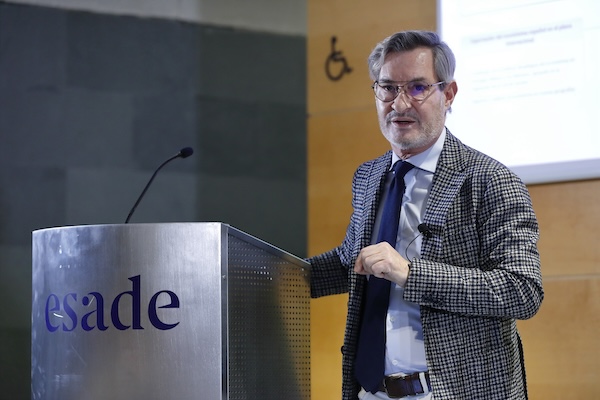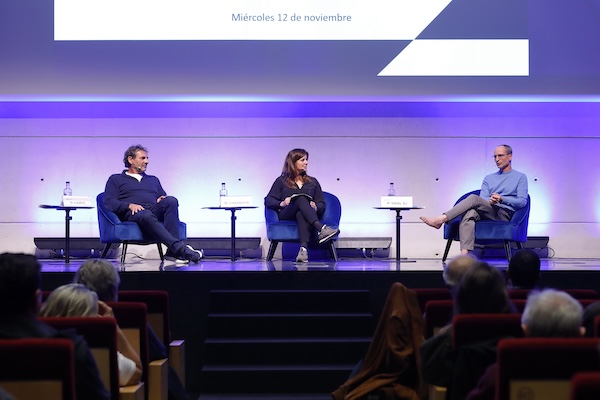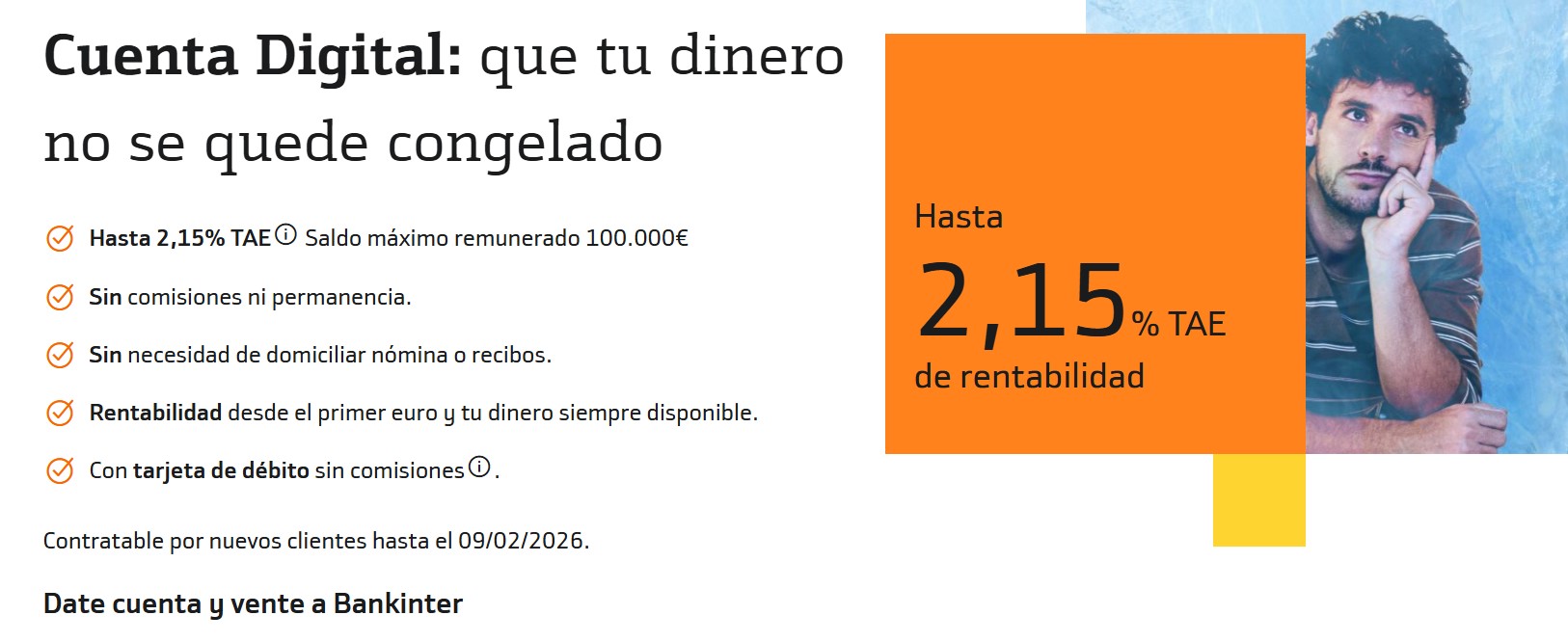We talk with Merche de Hériz about her career, which spans from roles in major corporations like Commodore and Microsoft to her current work as a consultant in social organizations
Merche de Hériz shares the key lessons she has learned in her career in the business world, like the knowledge that pushed her to make a significant shift towards the third sector and the challenges she came upon in this process.
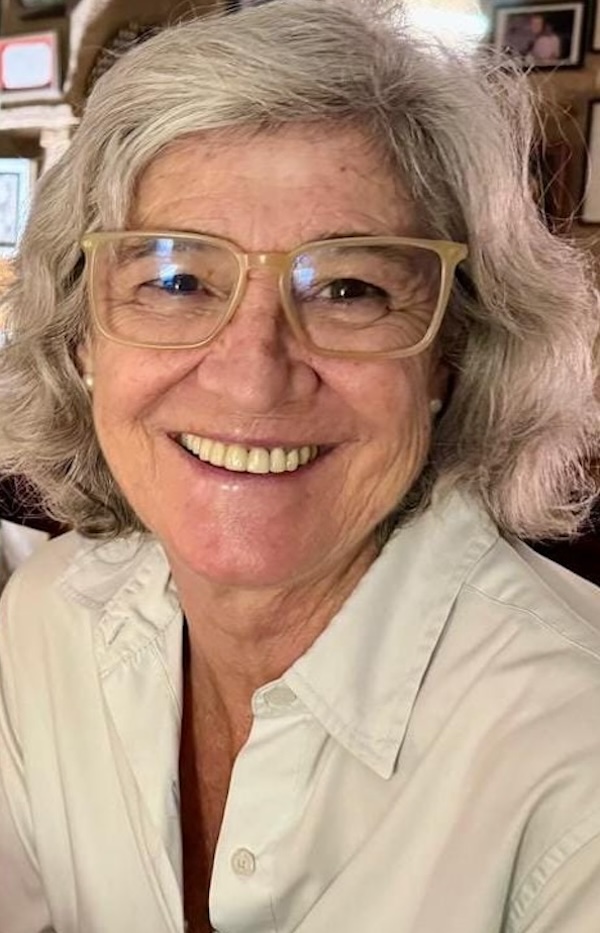 - What key lessons did you learn during your time in companies like Commodore and Microsoft which have been helpful in your career afterwards?
- What key lessons did you learn during your time in companies like Commodore and Microsoft which have been helpful in your career afterwards?
I learned lots of things. At the university (UAB), I earned a diploma as a French and English translator, and in those two companies my professional motivation was endogenous and based on the possibility of gaining skills through work. Throughout my career at Commodore, I was able to get training in marketing and sales and go from being an executive secretary at first to the head of the Catalonia delegation in its later years. Between the two companies, I was able to further my training with a PDD, and over the course of my 14 years at Microsoft, the different challenges in the position changes and the training facilities offered to executives were a stimulus for what I call “professional seeking.”
- What drove you to make such a significant change in your career and move from the corporate world to consulting in social organizations?
A sudden catalyst was that I had to leave Microsoft in its 2009 reorganization. Microsoft was boldly reorganizing and readapting its resources (human, economic, strategic), seeking excellence in management, and I was invited to change positions or leave the company. In my last years at Microsoft – back in Barcelona – I had been able to work with the head of CSR in Madrid, and I brought the initiatives the company was undertaking to Barcelona, such as rolling out basic computer training classrooms for groups suffering from social exclusion, while encouraging employees to get involved in these initiatives as volunteers.
Since I couldn’t find the position I wanted in Microsoft at that time (related to CSR and international), I decided to leave and start my career in the world of cooperation, with the idea that perhaps what I had learned about business in the service industry could be transferred to the third sector. Aware of my shortcomings, I sought training, and after a postgraduate degree in International Development Agents (UPC Foundation – Setem) and directing a small NGO (Amics de Nepal), I was able to join Esade’s DGONG 11 course.
As an alumna, after a few years I became keenly interested in Esade Alumni’s Giving-back Consultants initiative and was able to be involved with it two years in a row.
- What were the main challenges you faced when you changed sectors? How did you overcome these difficulties?
At that time, the post-2008 crisis had left lots of very skilled, highly trained, expert people out of work (from developing agencies, social organizations, institutions), which left little room for a 55-year-old who was unknown and inexpert, unless I went in the side door as a volunteer.
My economic situation (my savings, the dismissal pay package, years of unemployment) enabled me to do it this way, and I kept up that motivation to grow by learning.
- In what type of projects are you involved and what are your main responsibilities?
I have volunteered in the communication and awareness department at the Arrels Fundació for five years. I had been a partner there and was very familiar with this foundation for a long time. I specialize in contacts with companies, dissemination among employees (and citizens) of the causes, reality, and needs of people who sleep on the streets; I help companies materialize their wish for corporate volunteerism and to identify their possibilities as donors.
- How would you assess the social impact of your work, and what are your long-term goals?
I understand that we are after ways to assess social impact. How could I not understand it if in consulting we’re always after markers! We have to measure because we are obligated to compete for resources on issues that do not have the classic metrics of income, traditional growth, etc. My “measurable” social impact would be the increase in the number of people who look, see, and interact with people who live on the streets in a different way, considering them people with their full attributes.
My long-term goal is to continue learning from all homeless people. Every time we see each other, we meet, we present Arrels, I learn. It’s vain to think that I, that we, are going to change the world. But with other people helping and listening, we may make the world a bit friendlier.
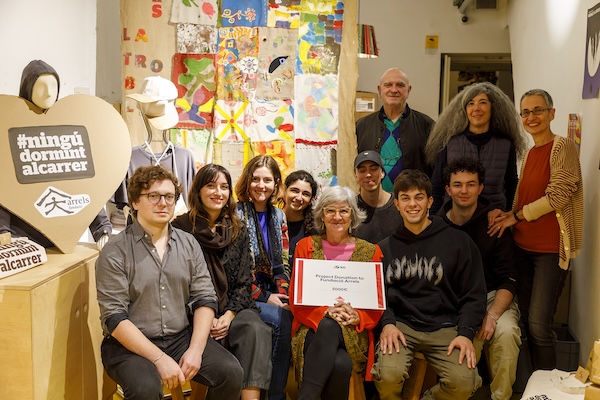
Foto of Jaume Lemus of Arrels Fundació
- What does it mean for you to be part of the Esade Alumni community?
I feel like I’m part of the Esade Alumni community, not just a participant in it. Its content, its contributions, its values, its educational coherence, and especially Alumni Social initiative make me feel so proud of being a part of this community. Esade Alumni Social, with Isabel Rallo at the helm, knows that I am there for them, even if I only have limited time now.
- Tell us about your experience as an Alumni Social consultant. How would you rate your participation in other Esade Alumni activities related to the third sector?
I had been working as a consultant on my own for a small company for some time. The Alumni Social consulting gave me the chance to work in a team again, to listen to the needs of social organizations. The challenge of responding to those needs during the academic year prevents the dispersion that happens so often when you want to help manage an organization, and the team of consultants helps distribute the tasks depending on each person’s experience so the result can come to fruition.
I have missed very few sessions in all these years: the enriching film forums, the round tables organized by the Institute of Social Innovation and Ignasi Carreras, the talks and lectures by prominent people in the third sector… they have all contributed to my ongoing training.
- What motivated you to get involved in the Together Program in Bolivia, and how did it impact you?
That could be an entire interview! Esade’s social and solidarity track record is remarkably coherent. Esade alumni who have gained experience in giving-back consulting are capable of listening, hearing, supporting, and continuing to learn in projects in impoverished countries. Their initial intervention is briefer. In our case, Josep Solans and I were in Bolivia for just ten days and we addressed two different projects. That year (2016), the organizations were proposed by Oxfam Intermón (an organization I belonged to for decades) and enabled us to meet and learn from people both here and there who have been very important in my personal life.
After that, the development of the project, addressing those organizations’ needs, is part of the training of Esade students who have chosen Esade SUD (University Development Service) and want to contribute to foster the fair development of people and the environment by supporting a common case. Did you know that there are students who want to enroll in Esade because they know that this pedagogical innovation option exists? I find that so exciting!

 - What key lessons did you learn during your time in companies like Commodore and Microsoft which have been helpful in your career afterwards?
- What key lessons did you learn during your time in companies like Commodore and Microsoft which have been helpful in your career afterwards?
